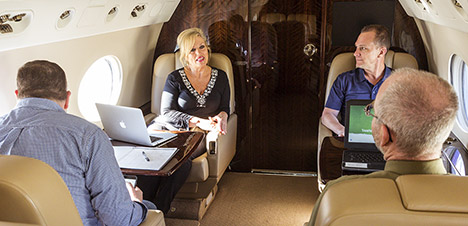
Aug. 31, 2017
The traditional charter model, which relies on managed aircraft being offered for on-demand whole aircraft charter, could be evolving, experts say, and new business models may be the next generation of this important segment of business aviation.
Greg Cirillo, member and founder of HCH Legal, LLC, called the businesses using these new models “uncommon carriers,” and classified them in three categories:
- Charter operators conducting scheduled operations (FAR Part 380)
- Charter operators that purchase and operate aircraft with the sole purpose of chartering the aircraft, rather than relying on managed aircraft
- Charter broker market disrupters
“Charter broker market disrupters are using big data, social networking and other tools to try to expand the pool of regular passengers and drive down the cost of charter,” said Cirillo, adding that social networking can be used to find and aggregate passengers and blend characteristics of on-demand charter and scheduled flights.
Rather than these models threatening the traditional charter model, in which charter use of the managed aircraft is typically secondary to the aircraft owner’s use, Cirillo sees this as a “gradual revolution” to the industry.
Aircraft manufacturers, charter operators, repair stations and other segments of business aviation stand to benefit from a broader user base and increased aircraft utilization.
Learn more about the role of “uncommon carriers” in business aviation at the upcoming NBAA Regional Forum in Morristown, NJ on Sept. 7, where Greg Johnson of OneSky, Jeff Thoben of YouCanJet and Cirillo will discuss “Uncommon Carriers – How Social Networking Will Bring Air Charter to the Masses.”


 International Business Aviation Council Ltd.
International Business Aviation Council Ltd.